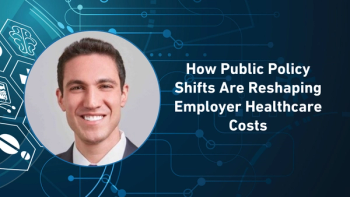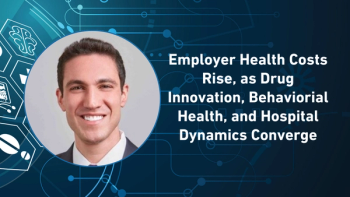
Healthcare spending growth reverses direction, climbing at a higher rate in 2011
Spending in 2011 grew at 4.6% among employer-sponsored insurance plans
seems to be the rate of growth. And, after declining, year over year, in 2009 and 2010, that rate has now ticked upward, according to a report from the Health Care Cost Institute (HCCI; Washington, DC). Growth in 2009 was 5.8%; in 2010, 3.8%. The estimated total for employer-sponsored plans (ESIs) was $709.2 billion, representing approximately 40 million covered lives (HCCI’s 2010 report’s basis was 33 million lives; the 2010 figures have been adjusted to reflect the changing basis.)
For per-capita expenditures, HCCI segments costs by four categories: inpatient facility; outpatient facility (visits or other); professional procedures (physician and nonphysician); and prescriptions. The one category that is not contributing substantially to healthcare cost growth is prescriptions: HCCI estimates this growth at 1% in 2011, and it represents $773 in per capita terms. Professional procedures is the largest single category, with $1,566 per capita expense; it grew by 4.5% in 2011. The other two categories: inpatient, $963 (up 4.8%); and outpatient, $1,245 (up 6.8%). The overall per-capita total is $4,547. Out-of-pocket expenditures by individuals totaled $735, representing 16.2% of the per-capita total; the rest is covered by insurers.
Looking specifically at prescription trends, HCCI found that beneficiaries averaged 9.2 prescriptions, of which 1.9 were branded and 7.2 (approximately) were generic. Branded use declined by 12.9%, but spending rose 2.4%. Generic use rose 3.4%, but spending declined 4.0%.
HCCI is a year-old, independent nonprofit, apparently funded by insurance companies (Instittue literature refers to data providers Aetna, Humana, Kaiser Permanente and UnitedHealthcare), but governed by a board of healthcare policy specialists.
Newsletter
Stay ahead in the life sciences industry with Pharmaceutical Commerce, the latest news, trends, and strategies in drug distribution, commercialization, and market access.




